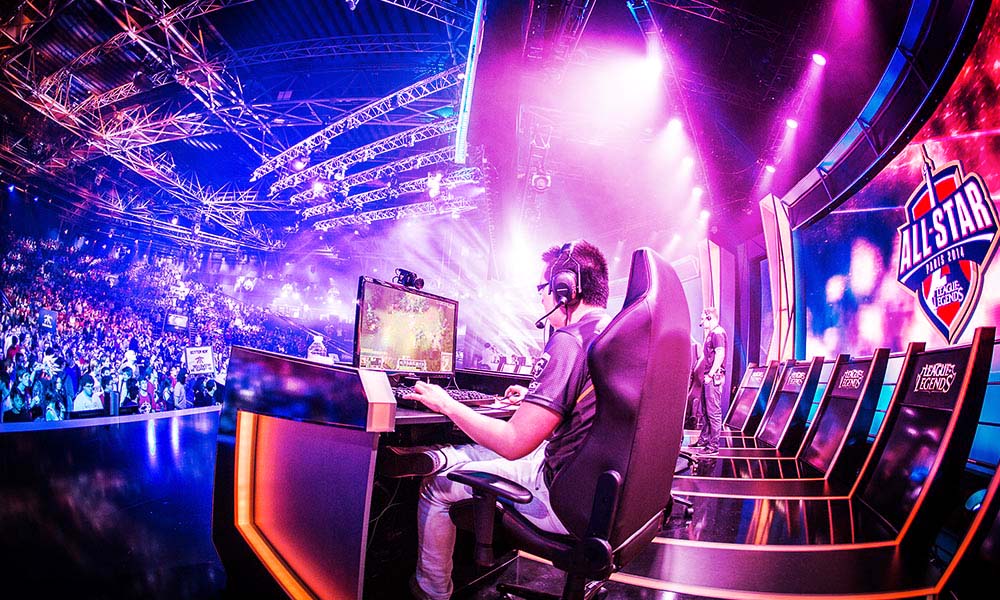
Facebook has always been a natural platform for big brands and large sports leagues to connect directly with consumers. The social-media giant has also become a mainstay for the burgeoning esports ecosystem, most recently partnering with Hi-Rez Studios and the World Esports Association for the Paladins Premiere League, which will stream exclusively on Facebook.
Guy Cross, head of games partnerships for North America at Facebook, told AListDaily that companies trying to grow their businesses have been looking to Facebook to help market and build their brands and fan bases.
“With esports, there’s a really interesting intersect where we have over 800 million people playing Facebook-connected games each month,” Cross said. “The fact is, gamers are using Facebook in some way, and companies are trying to grow their businesses across our family of products.”
Cross said the key is that Facebook is a digital community platform and people connect to each other either through or around games.
“That’s what we’re built on, and hopefully we can deliver that sort of community connection around esports,” Cross said. “And it’s not just professional players connecting with fans, but fans connecting to each other around the player, around the team, around the game and around the genre.”
Facebook is making a sizable investment in the long-form video experience on Facebook. Cross said that since it’s a new platform, there is no lock of the top six esports on Facebook yet, and that opens up an opportunity for various players in the game to claim that position. For example, Team Dignitas and Immortals are some of the early esports organizations to utilize Facebook to broaden their fan reach.
“We saw it happen once with casual gaming, where Zynga was a start-up and small companies like Playfish and Playdom grew massive communities on Facebook,” Cross said. “That happened about 10 years ago, when we were just entering the games space. We have a long relationship with game companies now, and we’re being very thoughtful about how to build out a platform for the gaming community at large. Esports is going to be a huge component of that. It won’t be the only component, but it will be a big one.”
Team Dignitas CEO Jonathan Kemp previously told AListDaily that the company added Facebook livestreaming to the mix because advertisers already were familiar with that platform.
“When you have a company like Johnson & Johnson spending a big portion of their marketing on Facebook already, it might not be a big stretch to explore esports,” said Cross. “From an advertiser’s standpoint, there’s a lower barrier to entry.”
“When you have a company like Johnson & Johnson spending a big portion of their marketing on Facebook already, it might not be a big stretch to explore esports.” — Guy Cross, head of games partnerships for North America at Facebook
Cross believes that type of global diversity is important for brands that want to engage with different audiences and connect with all types of gamers from PC to console and mobile–Facebook’s ability to connect with people’s identity serves as a boon for the social platform.
“This idea that there’s an authentic identity tied to Facebook is something that we’re exploring,” Cross said. “What does that bring to the equation and how does that manifest for not just players, but the community experience of watching together? What does that mean for brands? I don’t think we’re in a place right now where we want to share any results, but behavior is different on Facebook than it is on other platforms where real identity isn’t part of the equation.”
Facebook is also integrated into multiple gaming communities across PC, mobile and console so that it understands the gaming audience a bit better on how and what they play. The company then uses that information to connect them to experiences. Facebook also has evolved from a platform where casual games used to spam friends’ lists into a place where everyone from game developers to esports teams are conversing and livestreaming with communities.
Cross said that means brands no longer have to advertise to a generic age bracket. Instead, marketers both endemic (and non) are refining their strategies to serve the right ad or brand experience, in the context of games.
Facebook’s investment in gaming and esports comes as the company is under increased pressure with regard to micro-targeted advertising in the wake of the Russian election interference. The company is adding new manual checks for ads involving “politics, religion, ethnicity or social issues” before they go live.
With this in mind, Cross described one hypothetical way all of the collected data could be used by brands in the future to connect directly with gamers. He pointed to the healer character Mercy in Blizzard Entertainment’s game Overwatch.
“I like to play a lot of healing and support roles in games, so if a brand steps in and offers me a first aid kit that’s something I could actually use,” Cross said. “I’m also a real outdoors guy, so if I was targeted with advertisements for a kickass soft-sided first aid kit that fits in your adventure pack, that’s something I’d find interesting and might buy. This is where I think this data play gets really interesting.”

